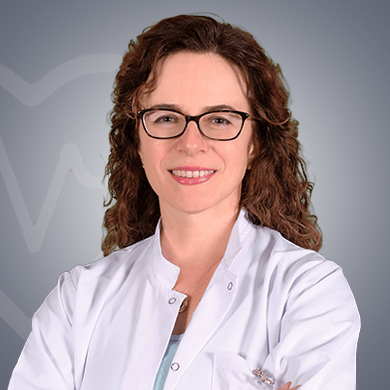
14 Years of experience
Speaks: English
A medical oncologist specializes in the treatment of different types of cancer with the help of chemotherapy and other methods like targeted therapy or immunotherapy. They are considered the primary health care provider for cancer patients. The doctor works with the other medical departments for the best results. Here is a list of some of the conditions Dr. Gul Basaran treats:
Different types of cancer produce different signs and symptoms. It is very crucial to detect cancer in the early stages. Early detection of cancer helps in the effective treatment of cancer. Some of the symptoms look like those produced in other health conditions. It is highly suggested to consult an oncologist who will evaluate the symptoms and will suggest tests to detect cancer. With the advancement of medical technology, a number of diagnostic techniques are available which can effectively diagnose cancer. If you have any of the below-listed symptoms, your primary care doctor may refer you to a medical oncologist:
You can find Doctor Gul Basaran in the clinic/hospital from 11 am to 5 pm (Monday to Saturday). The doctor is not available on Sunday. You can connect with the doctor or his attendant to confirm his/her availability because the doctor may not be available in the given time due to some personal reasons or any emergencies.
The below-listed popular procedures that Dr. Gul Basaran performs are:
A medical oncologist uses chemotherapy for cancer treatment. It uses a combination of drugs to kill the cancerous cells in the body and prevents them from growing further. While chemotherapy could require a single drug, this is also given along with other drugs. Hormone therapy is a procedure that uses medicines to stop or lower the amount of hormones used by cancer cells to grow. Hormone therapy is used for the treatment of breast cancer, prostate cancer, ovarian cancer, and womb cancer.

Share Your Experience about Dr. Gul Basaran

A medical oncologist treats cancer using different methods, such as biological therapies, chemotherapy, hormonal therapies, and other targeted treatments. People often consider medical oncologists as their primary cancer doctor. They also assist their patients to manage side effects, and they help monitor well-being. Very often, patients follow up with medical oncologists post-treatment. If a medical oncologist finds that cancer cannot be treated, they recommend hospice or palliative care for the patients. A medical oncologist is mainly involved to manage cancer.
A medical oncologist would suggest the below tests to be performed to diagnose cancer:
One of the most common test for cancer, biopsy is a sample of tissues extracted from a body part in order to examine it. A doctor recommends biopsy when a previous test suggests an area of tissues isn't normal.
A person needs to see a medical oncologist when he/she is diagnosed with cancer. Medical oncologist can help understand diagnosis as well as plan cancer treatment. You can also see a medical oncologist for any questions you have. You need to see a medical oncologist if you experience the symptoms listed below: